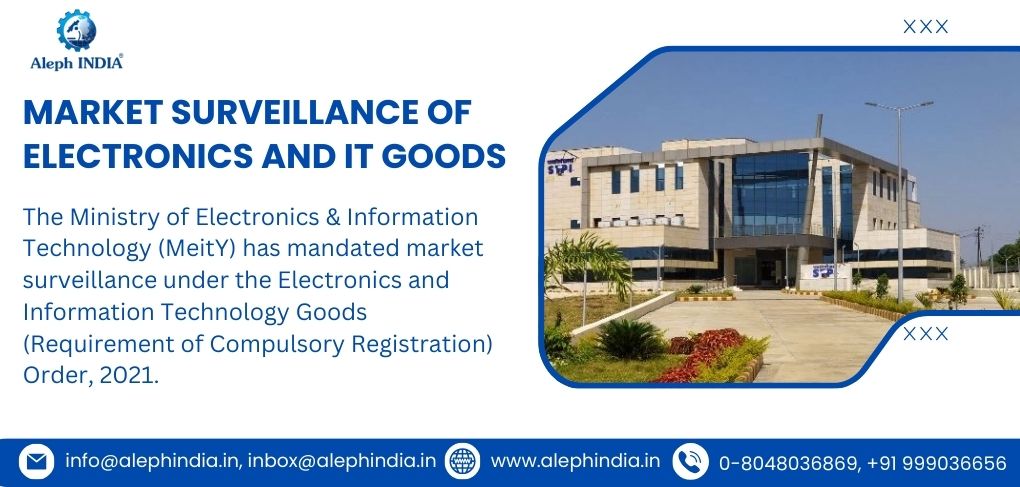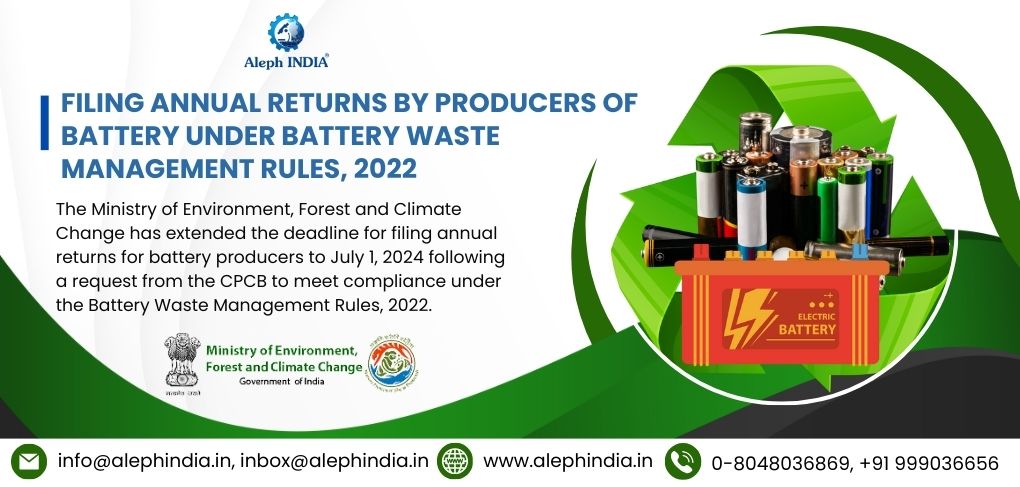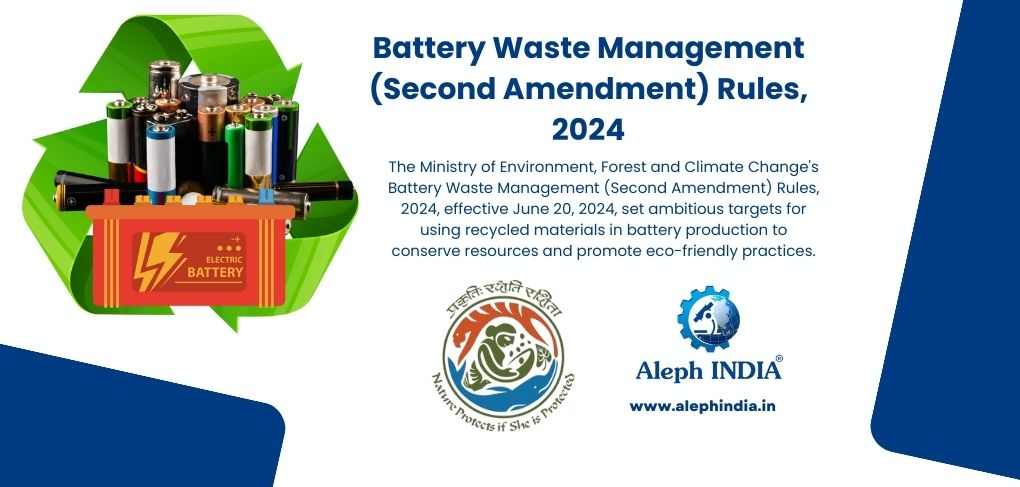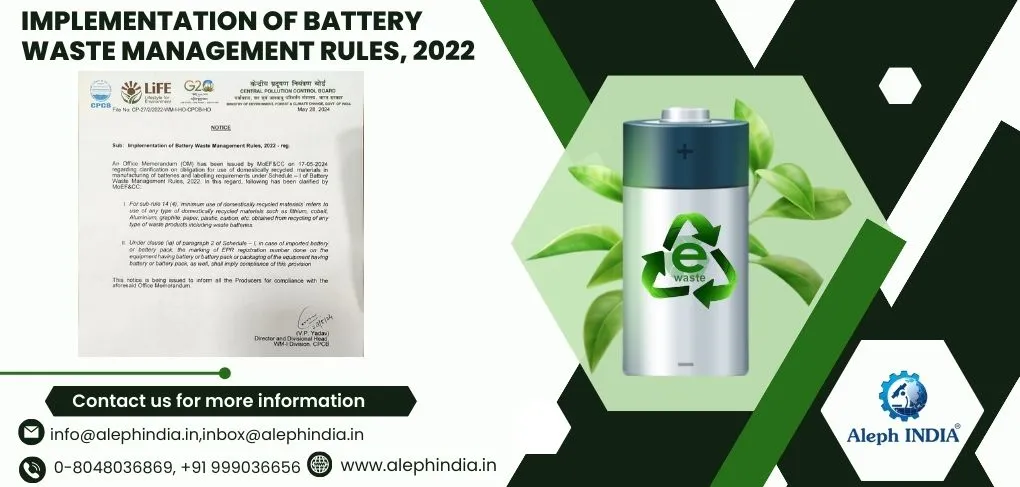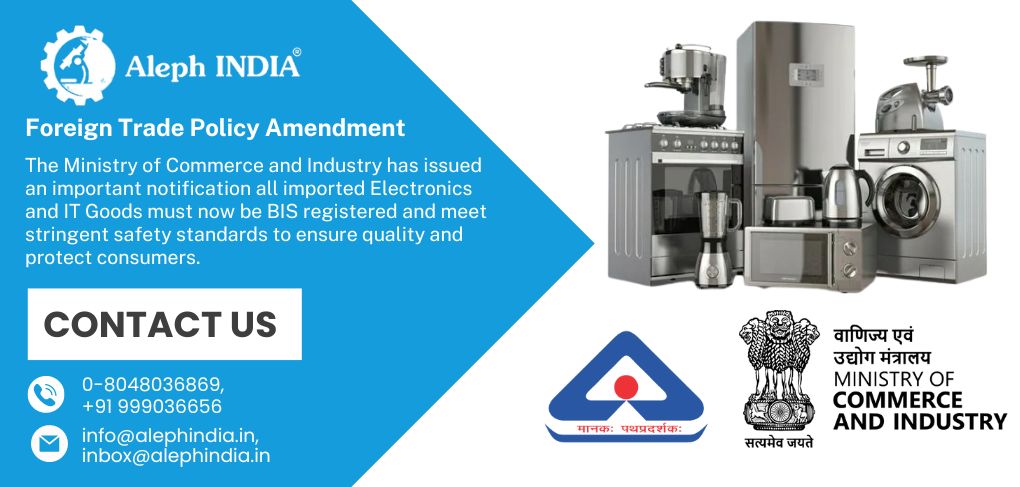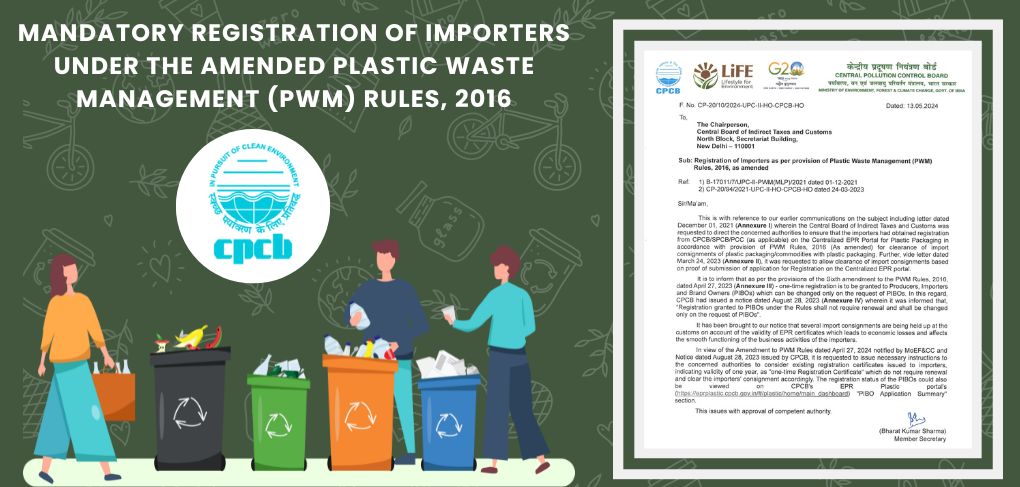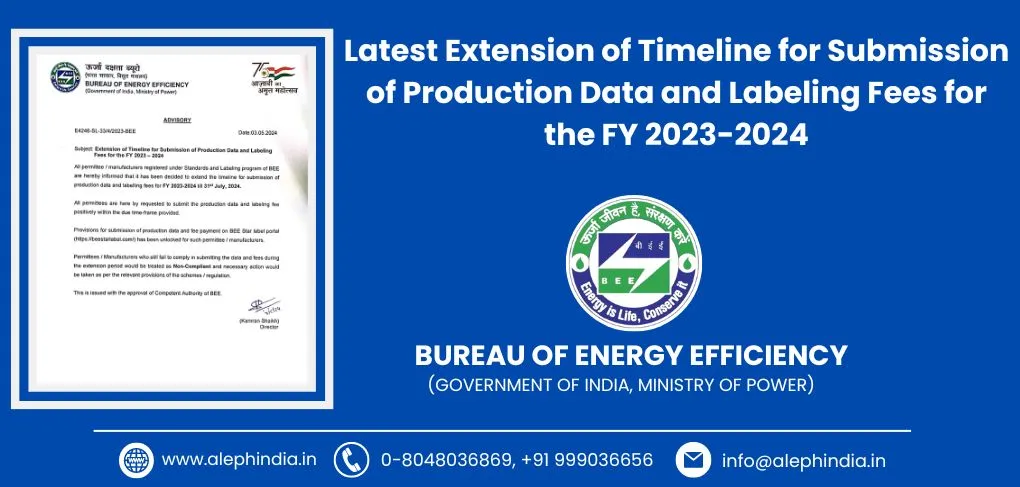- HOME
- ABOUT US
- SERVICES
-
LICENCE & CERTIFICATION
- BIS (ISI MARK) FOR FOREIGN MANUFACTURERS
- DOMESTIC PRODUCT CERTIFICATION (ISI MARK)
- BIS SCHEME X CERTIFICATION
- BIS CERTIFICATE OF CONFORMITY (CoC)
- BIS HALLMARKING
- REACH CERTIFICATION (GLOBAL)
- LABORATORY RECOGNITION SCHEME (LRS)
- WORLD MANUFACTURER IDENTIFIER (WMI) CODE
- ECO MARK
- TAC APPROVAL FOR AUTOMOBILE
- PESO CERTIFICATION
- SASO CERTIFICATION
- CDSCO CERTIFICATION
-
REGISTRATION
- BIS (CRS) REGISTRATION FOR ELECTRONIC PRODUCT
- WPC-ETA APPROVAL
- BEE CERTIFICATION
- E-WASTE MANAGEMENT (EPR)
- EPR REGISTRATION FOR PLASTIC WASTE MANAGEMENT
- EPR REGISTRATION FOR BATTERY WASTE MANAGEMENT
- EPR REGISTRATION FOR USED OIL
- LEGAL METROLOGY (LMPC)
- TEC/MTCTE APPROVAL
- CE CERTIFICATION
- UL CERTIFICATION
- ROHS LICENCE
- DRONE REGISTRATION
- MOEF LICENCE
-
AUXILIARY
- STANDARDIZATION (SCIENTIFIC) DIVISION
- TRAINING SERVICES (NATIONAL & INTERNATIONAL)
- IMPORT/EXPORT LICENCE
- FSSAI CERTIFICATION
- MSME/SSI/NSIC REGISTRATION
- ISO REGISTRATION
- BRAND REPRESENTATION
- LABORATORY EQUIPMENT AND SETUP
- TRADEMARK REGISTRATION
- MAKE IN INDIA SUPPORT
- AG-MARK LICENCE
- THIRD PARTY INSPECTION AND MONITORING SERVICES
-
- PORTFOLIO
- UPDATES
- CONTACT
- LOGIN
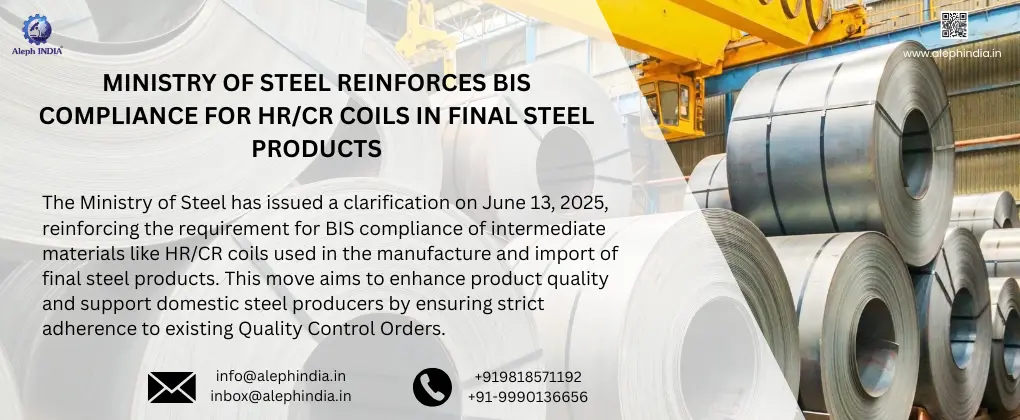
Ministry of Steel Clarifies BIS Compliance Requirement for Intermediate Steel Products
In a significant move to uphold the quality of steel products in India and protect the interests of domestic manufacturers, the Ministry of Steel has issued a clarificatory order dated 13th June 2025 regarding the enforcement of Quality Control Orders (QCOs) for steel products.
Background
Over the years, the Ministry of Steel has introduced Quality Control Orders covering 151 BIS
standards for steel products to ensure that both domestic production and imports conform to
prescribed safety and performance standards. The last QCO was issued in August 2024, and no
new QCO has been issued since.
However, the recent 13th June 2025 clarification has been issued to address a growing concern:
the use of non-BIS compliant intermediate materials (like HR/CR coils) in the production and
import of final steel products.
Key Highlights of the Clarification
1. Intermediate Materials Must Also Be BIS Compliant:
- Manufacturers and importers must now ensure that intermediate steel products used in the production of BIS-regulated final products also comply with the relevant BIS standards.
- For example, coated steel that uses Hot Rolled (HR) or Cold Rolled (CR) coils as base material must ensure those coils are BIS certified. If the base material isn’t compliant, the final product cannot be BIS compliant either.
2. Ensuring Parity Between Domestic and Imported Products:
- Previously, Indian manufacturers were required to use BIS-certified intermediates, whereas importers could bypass this, giving them an unfair advantage.
- The new clarification removes this disparity, ensuring fair competition and protecting domestic producers.
3. Protection Against Substandard Imports:
- With global steel consumption slowing and production capacities rising, countries may seek to dump cheap, substandard steel into fast-growing markets like India.
- This clarification is aimed at preventing the inflow of low-quality steel, safeguarding the integrity of India's steel infrastructure.
4. Clarification for Integrated Steel Plants:
- Integrated steel plants, which produce both intermediate and finished products under a single BIS licence, will not need separate licences for each stage.
- Further guidance will be issued by the Ministry after consultation with BIS.
5. No Impact on Steel Prices:
- Concerns regarding potential price hikes due to this order are unfounded, as India has a manufacturing capacity of 200 million tonnes, which is sufficient to meet domestic demand.
6. Support for Domestic Industry Growth:
- India’s steel consumption is growing at over 12% annually, thanks to rapid infrastructure and industrial development.
- To meet this demand, India needs to expand its steel production capacity to 300 MT by 2030 and 400 MT by 2035, requiring investments of approximately USD 200 billion.
- Allowing unchecked imports of cheap substandard steel could undermine domestic industry’s ability to grow, leading to job losses and reduced investments.
Conclusion
This clarificatory order by the Ministry of Steel marks a vital step toward quality assurance,
fair trade practices, and self-reliance in steel manufacturing. It reinforces the importance of a
strong and competitive domestic industry that adheres to global quality benchmarks while
protecting it from unfair international practices.
As India gears up for unprecedented infrastructure and industrial growth, ensuring the quality of
every layer—from raw materials to finished products—is essential. This order strengthens the
foundation of that vision.
Stay tuned for more regulatory updates and insights from the steel and manufacturing sectors.


